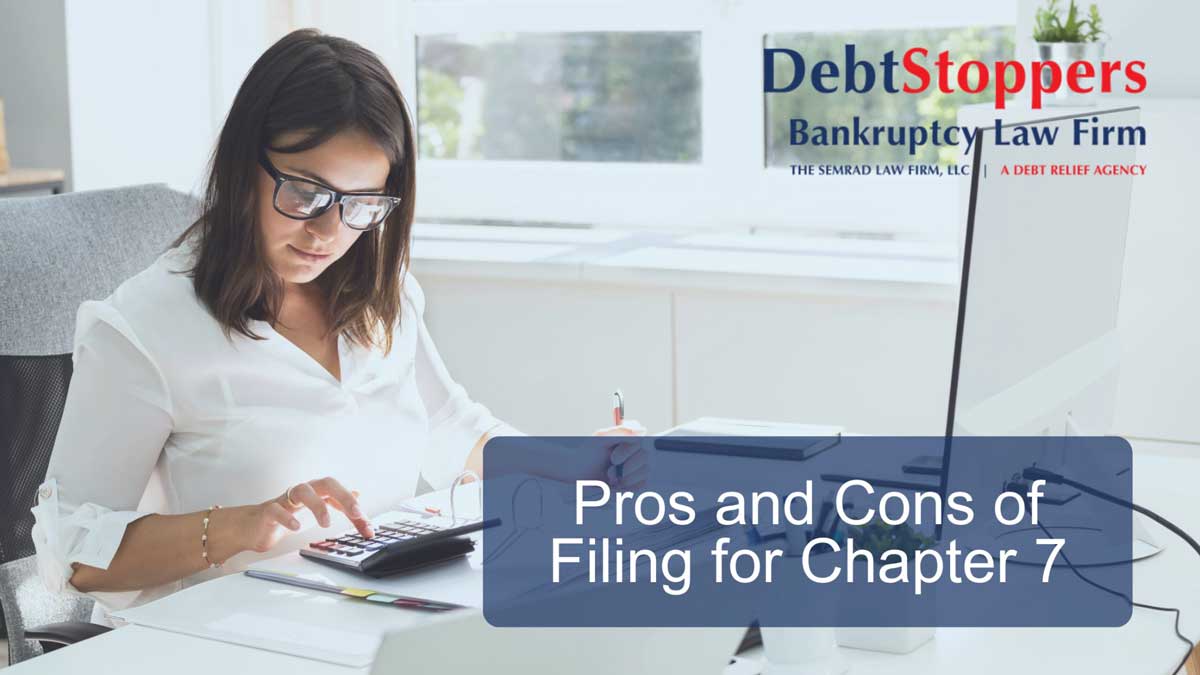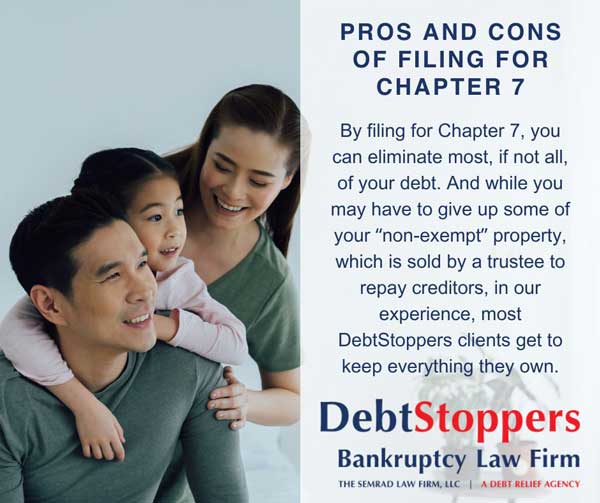Pros and Cons of Filing for Chapter 7

When people are struggling to keep up with their debts, they may consider contacting an attorney about bankruptcy. Chapter 7 is one of the most common types, and with the help of a lawyer, it can provide significant relief from debt collectors.
However, there are also some drawbacks you should discuss with a lawyer before deciding what to do. This blog post will explain the pros and cons of Chapter 7 bankruptcy. But before you make any sort of choice, be sure to consult with an experienced debt relief attorney in your area.
Chapter 7 in a Nutshell
Chapter 7, which your lawyer may refer to as a "liquidation bankruptcy,” is the most common type of filing. It is generally reserved for individuals who can't afford to repay their debt and don't earn enough wages to make monthly payments to creditors. Other types of debt relief are available, so be sure to talk to your attorney about the best option for your situation.

By filing for Chapter 7, you can eliminate most, if not all, of your debt. And while you may have to give up some of your “non-exempt” property, which is sold by a trustee to repay creditors, in our experience, most DebtStoppers clients get to keep everything they own.
The proceeds from the sale of the assets are used to pay back your creditors, and any remaining balances are discharged. This means you won’t have to repay any of these debts, and you can start over fresh with the assistance of your attorney.
Cons of Filing Chapter 7 Bankruptcy
One of the limits of Chapter 7 bankruptcy is that it can be difficult to qualify for, even with the help of a skilled attorney.
Debtors must pass a "means test" in order to qualify, which may exclude people with a steady income from this type of bankruptcy. So if your household and disposable income are too high, the laws may prevent your lawyer from obtaining relief for you.
Another negative aspect is that it can damage your credit score. Your discharge will stay on your credit report for up to 10 years, which can sometimes make it challenging to obtain new lines of credit in the future. However, in our experience, you can usually rebuild credit score quickly after your debt is discharged.
While there are some cons to bankruptcy, the benefits typically outweigh the drawbacks. That being said, be sure to discuss any concerns you may have with your lawyer.
Pros of Filing Chapter 7 Bankruptcy

-
It can discharge most types of debt.
If you qualify for Chapter 7 bankruptcy, you can have most of your debts discharged. This means you will no longer be liable for repaying them. That can free up a lot of financial breathing room, which can be a lifesaver if you're struggling to make ends meet.
-
It can give you a fresh start.
Filing can give you a clean slate, financially speaking. Once your attorney helps you discharge your qualifying debts, you'll no longer have to worry about them. With this protection in place, you can focus on getting your finances back on track.
-
It's relatively quick and straightforward.
Compared to other types of bankruptcy, Chapter 7 is relatively quick and simple to complete. In most cases, a lawyer can complete the entire process in just a few months. That makes it an attractive option for people who need debt relief but want to avoid going through a lengthy and complicated process.
Let a DebtStoppers Lawyer Help You Obtain Debt Relief
Chapter 7 is the most common type of bankruptcy in the United States for a reason: it can quickly provide comprehensive relief for individuals and families who are struggling to make ends meet.
Sign up for a free consultation with one of our experienced Debtstoppers lawyers today. During this meeting, a knowledgeable attorney will walk you through your options and answer any questions you may have about the requirements. The process is much easier with a skilled lawyer on your side, so contact us today to get started on the path to financial freedom.





